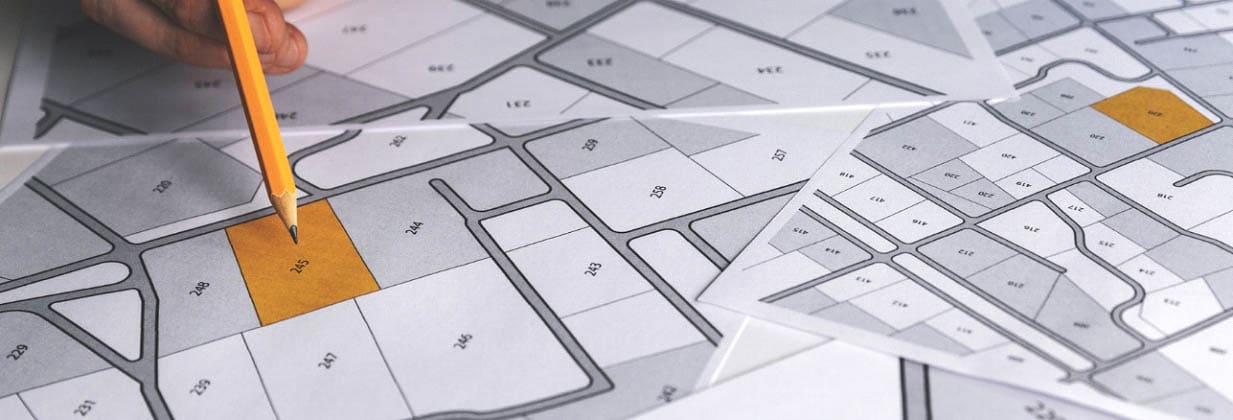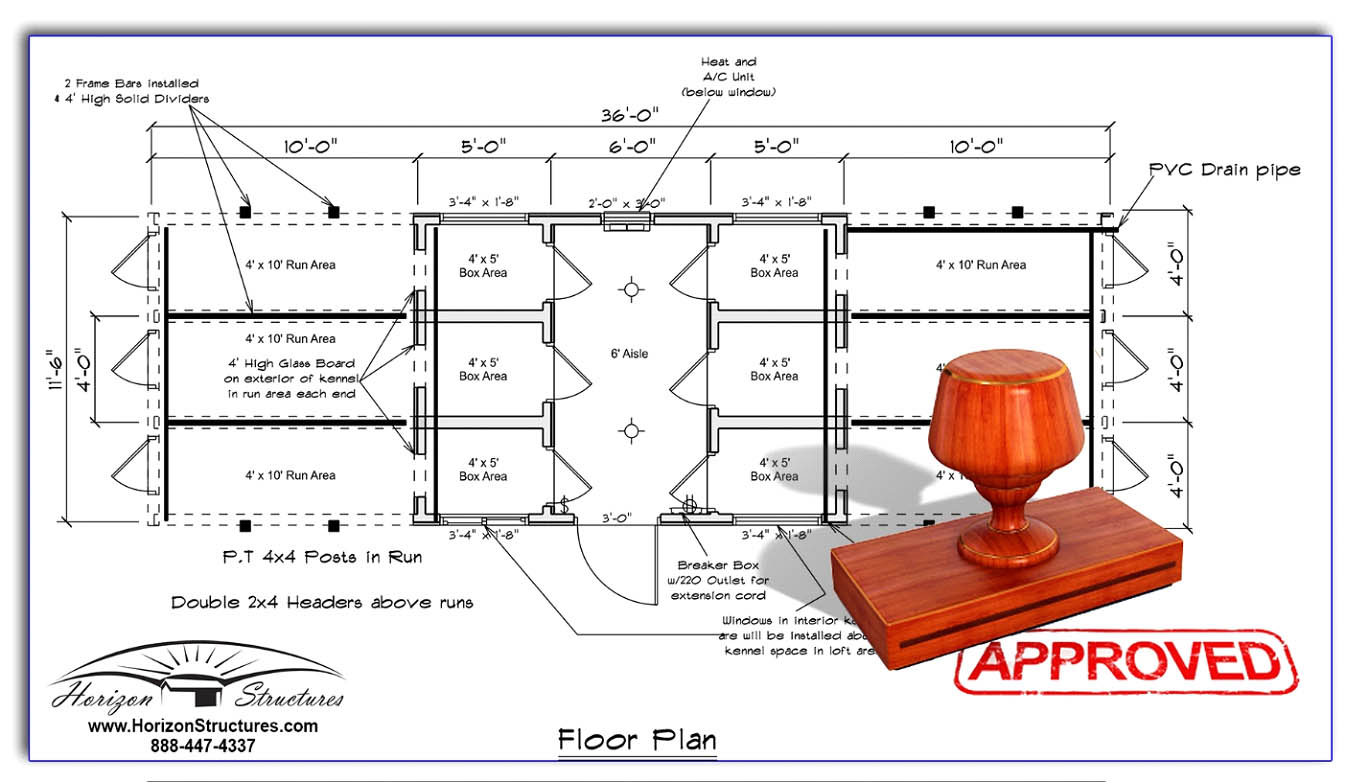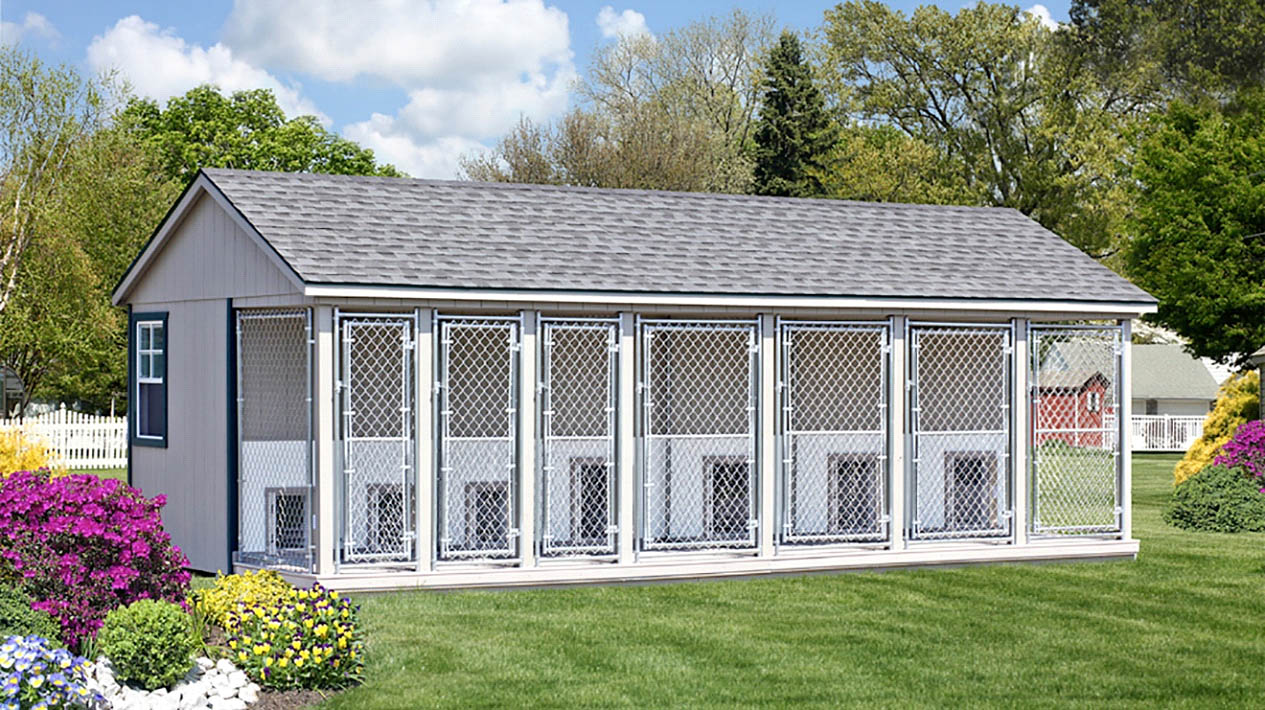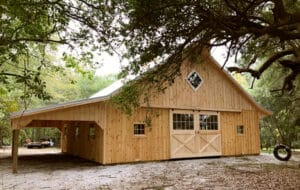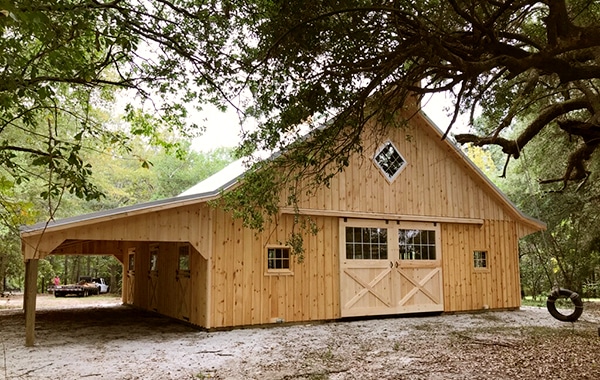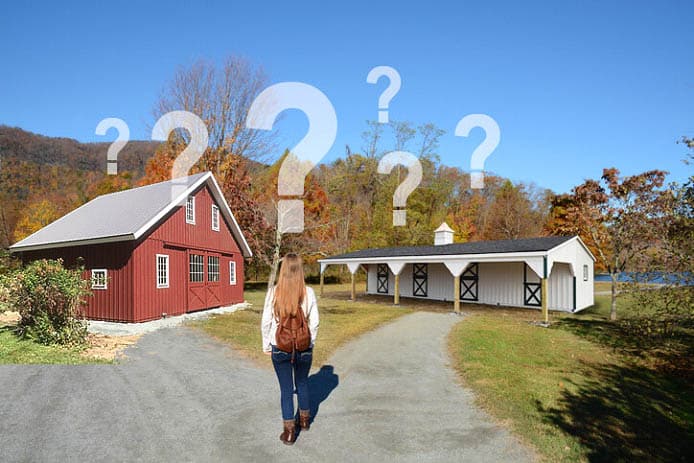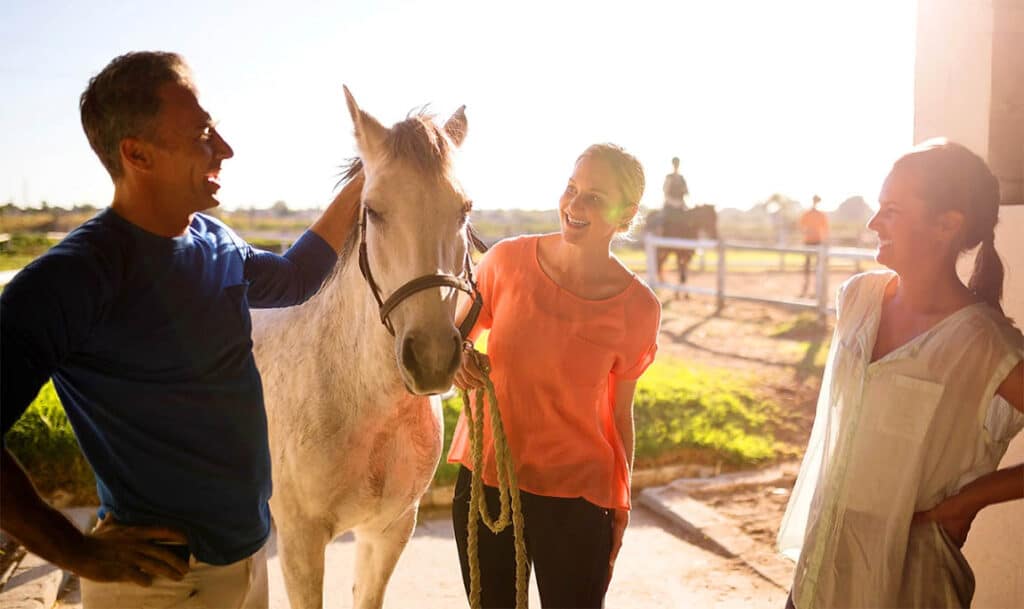Whether you want to build a kennel for your own personal use or you intend to make a business or not-for-profit, considering the laws and regulations surrounding building a dog kennel is the first place to start. Laws vary dramatically by state, county, and local ordinances, but knowing which sort of laws may apply is very helpful as you begin your research.
You may assume that it is your business whether you build a private kennel on your own property, but unfortunately, other people may well be involved in making decisions about whether you can build a kennel or not. In some areas, you won’t need to worry much about building a kennel on your property.
However, in other places, any kind of outbuilding, even a small kennel, may be tightly controlled. You will need to research local ordinances to find out whether you are allowed to build a kennel on your property, how big it can be, and whether any particular practices need to be followed in its construction. Here are a couple of things that may come into play:
Property Lines
Local ordinances typically restrict how close to a property line you can build. You may not even be entirely sure exactly where your property lines are. One of the first steps in deciding whether you can build a private kennel on your property is determining exactly where the property lines are and how closely you can build to them.
Building Permits
Most cities require that building permits are submitted before you can build on your property. Sometimes these restrictions only apply to buildings of a certain size, but other times they apply to any permanent structure. Because building permits can be complicated to understand, it may be best to get in touch with a city official to discuss your project and which permits may apply.
Homeowners Associations and Historic Preservation Districts
It is not just laws that you need to be concerned with when you are deciding whether you can build a kennel on your property. You also need to take into account whether you belong to a homeowners association or live in a historic preservation district. Homeowners associations are sometimes very strict about exactly what kind of building can be done on a property.
Even if you aren’t violating any city, state, or federal laws, you may need to follow specific rules set by the homeowners association. Historic preservation districts often restrict any alterations to the home or property that aren’t approved, no matter how small the change may be.
Laws Governing Building a Kennel for Commercial Purposes
Zoning Laws
Whatever your reason for building a kennel, it is essential that you check to make sure the property is zoned appropriately. Kennels are not always allowed in particular zones because these zones are not appropriate for any commercial uses, there are noise restrictions in the area, or for some other reason.
You will need to contact your local zoning board to determine whether you are allowed to build a kennel in a particular area. Very often, kennel-related businesses are not allowed within residential neighborhoods and sometimes they aren’t even allowed within city limits.
Insurance
No matter why you are building a kennel, if you intend to use it for commercial purposes, you may need to take out insurance on it. State and local ordinances may affect whether you need to carry insurance or the amount of insurance that is necessary. It may also be a good idea to carry insurance in case anything happens to a client’s dog while under your care. Sometimes, the way that your kennel is constructed may affect whether you can get insurance or how much insurance will cost you, so it’s a good idea to look into insurance before building your kennel.
Construction Laws
Depending on your state, there will likely be particular laws when constructing a kennel for any kind of commercial purpose. Most of these guidelines are common-sense rules which you would surely take into account when building your quality kennel anyhow. Here are a couple of most common mandates:
- Structurally sound
- Non-toxic materials
- Prevents dogs from being injured or getting away
- Waterproof and protection from inclement weather
- Keeps other animals from getting into the kennel
- Maintains a comfortable temperature
- Has ventilation for fresh air
- Kennel is large enough for dogs to stand up, turn around, and lie down
Building a Kennel for Breeding
If you intend to use your kennel for breeding purposes, you may have some special restrictions. Some states have very loose regulations on breeding, while others require that each dog has a particular amount of room, access to indoor and outdoor space, etc.
Sometimes these restrictions only apply if you have a specified number of dogs, litters per year, or income from the sale of dogs. You’ll need to check your specific state laws to determine the rules regarding housing breeding dogs in your area.
Federal laws apply if you have more than four breeding females and you sell puppies sight unseen online, to brokers, or to pet stores. If this describes your business, you will need to be USDA-licensed and pass USDA Inspections. The USDA requirements are quite minimal, requiring very little space per dog, so it is very unlikely that you will need to worry about whether or not you’re passing these regulations when building a quality kennel.
The federal Animal Welfare Act regulates anyone who profits more than $500 per year and sells sight unseen, although there are certain loopholes around this act. Again, these restrictions are not very demanding, and anyone who is building a high-quality kennel will likely fall within their guidelines.
Building a Kennel for Training, Boarding, or Grooming
You will need a commercial license before you can use a kennel for training, boarding, or grooming purposes, so it’s a good idea to look into this license before you invest the time and effort into building your kennel. Each state differs in the requirements for a commercial license. Construction on your building will need to be completed in order for an inspection to take place and a license to be acquired. Some states only restrict operations for a certain number of dogs, so look into how many dogs you’ll be caring for at a given time and whether you require a license for that number of dogs.
Building a Kennel for Rescue
Historically, not-for-profit organizations have not had very stringent requirements when it comes to kenneling dogs. However, some states, counties, and cities have increasingly strict rules in regards to animal shelter kennel regulations. Sometimes rescue organizations need to apply for the same sort of licensing and follow the same sorts of restrictions as would be required by a commercial kennel or breeder.
Determining whether you need to obtain this kind of licensing depends on the number of dogs that are kept or transferred in and out of your facility within a year. If your rescue organization is associated with a national organization like the Humane Society or the ASPCA, there may be additional restrictions in the way that your kennel is constructed.
Do Your Research Before Building a Kennel
Before you invest in a kennel on your property, it is very important to do your research to ensure that you are following all local, state, and federal laws. Keep in mind that what you intend to do with the kennel can affect what kind of laws apply to you. When you’ve done your research, you can build with confidence.



